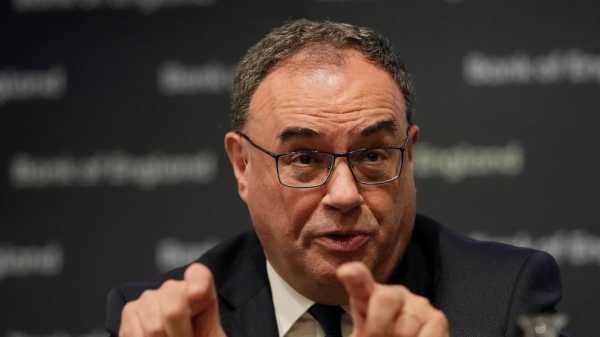
LONDON — The British economy unexpectedly grew in the second quarter of the year largely as a result of a strong rebound in June when many businesses, particularly in the leisure sector benefited from the warm and settled weather, official figures showed Friday.
The Office for National Statistics said the economy expanded by 0.2% in the April to June period, compared with the previous three-month period. That was higher than the 0.1% recorded in the first quarter and ahead of economists' expectations for no change.
Despite the increase, the British economy is the only Group of Seven leading industrial economy yet to recoup the ground lost during the coronavirus pandemic, with many economists blaming Britain's departure from the European Union, which has hobbled trade and added costs to businesses.
“The big picture is that the U.K. economy has expanded by just 0.4% since the start of 2022, the weakest growth in 65 years outside of a full-blown recession,” said James Smith, research director at the Resolution Foundation think tank.
The positive second-quarter outcome was largely due to a 0.5% monthly increase in June when pubs and restaurants were buoyed by the hot weather. June in Britain was the warmest on record.
Given that July was one of the wettest ever, there are widespread expectations that those businesses benefiting in June will see a reverse.
Over the past few months, the British economy has proven slightly more resilient than anticipated in the face of rising interest rates and multiple strikes across many sectors, including among doctors in the early stages of their careers in England, who started their latest four-day walkout on Friday.
Though a widely anticipated recession has been avoided, Britain's growth has been modest and is not expected to pick up soon.
The economy is not expected to get any boost from the Bank of England anytime soon. Earlier this month, while raising its benchmark interest rate to a fresh 15-year high of 5.25%, the bank hinted that borrowing costs would stay high for some time to bring down persistently high inflation.
Higher interest rates help dampen inflation by making it more expensive for consumers and businesses to borrow to buy homes, cars or equipment. That also weighs on economic growth, but the bank appears confident that the British economy will avoid falling into recession over the coming years even as unemployment begins to rise.
Central banks around the world have been raising borrowing costs to combat inflation unleashed by higher energy prices after Russia invaded Ukraine and supply chain backups as the global economy recovered from the coronavirus pandemic.
Sourse: abcnews.go.com






